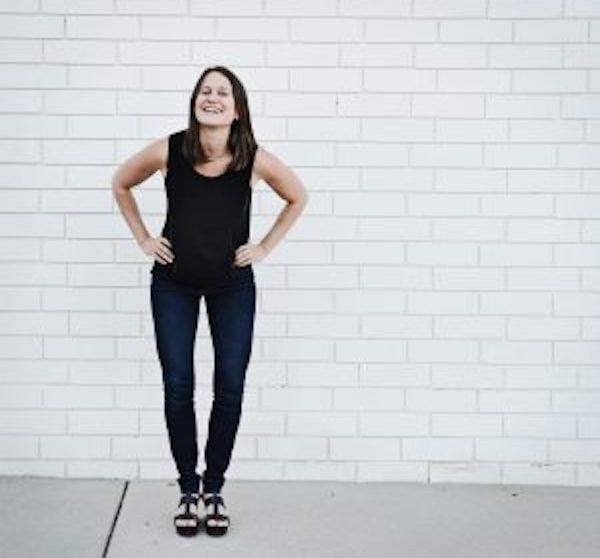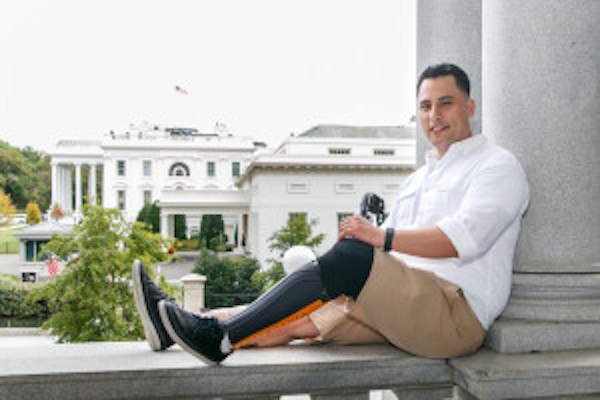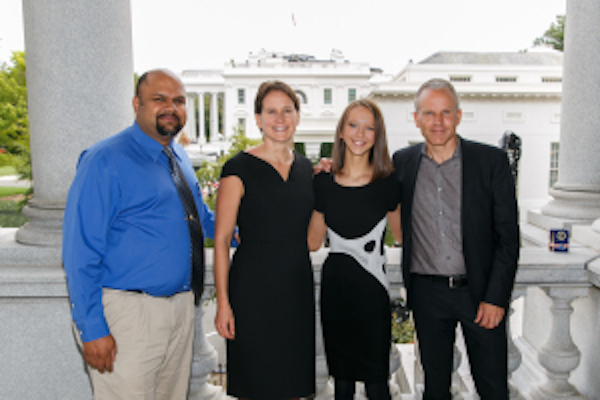
Evy Wilkins is the VP of Marketing at UNYQ, a company delivering personalized non-invasive orthopedic devices that improve quality of life and celebrate the user fashionably.
UNYQ has built a platform for the digitalization, additive manufacturing and instrumentation of prosthetics and orthotics. Evy is a strategic and creative marketer with a passion for turning ideas into reality.
Nora Toure: Evy, could you let us know about your background and what brought you into 3D printing in the first place?
Evy Wilkins: I took a windy road to 3D printing. My early studies were in natural resource management and I spent the first part of my career working on environmental policy and biodiversity conservation, both in Washington, D.C. and in West Africa. I completed my graduate degree in marketing in France and accidently got plugged into the startup technology scene in a little city named Nantes. I equate it very much in spirit, community and weather to Seattle.
A few years ago, a friend introduced me to a company called UNYQ. He described it with three very intriguing words: fashion, prosthetics and 3D printing… It was really the first time I looked closely at 3D printing. I knew it could be used to print toys and widgets but the industrial applications were new to me.
Nora Toure: Could you detail your first experience with 3D Printing?
Evy Wilkins: Watching something 3D print in any way is fascinating. It never gets old to me. I suppose it’s similar to watching a painter paint. At first, there is nothing and then, slowly, there is something.
I’ll admit that my first experience seeing a fused deposition modeling printer in action, I was shocked by the speed – or lack thereof. But when you imagine everything that goes into making it work, it’s truly a marvel. I’ve never 3D printed anything myself from start to finish. I have worked with designers on a file and watched the result print out before me. It should come as no surprise, the first thing I 3D printed was the UNYQ logo.

Nora Toure: You are the VP of marketing for UNYQ. Could you let us know about the service and products UNYQ offers?
Evy Wilkins: UNYQ provides personalized, fashionable and connected devices for a variety of orthotic and prosthetic applications. Broadly speaking, orthotics encompasses any device that braces a part of the body, offering support or other therapeutic benefit; and prosthetics are devices for amputees. We are bringing an entirely new level of personalization and design to this world which is typically associated with stigma. Our mission is to empower the people who wear these devices to embrace themselves in an authentic way while treating their conditions or providing mobility. UNYQ currently offers personalized protective covers for amputees and a state-of-the-art scoliosis treatment called UNYQ Align™.
Nora Toure: Does 3D printing help you differentiate your offer from your competitors?
Evy Wilkins: Our entire supply chain is built on 3D printing. No two UNYQ devices are the same. In fact, advancements in 3D printing are what paved the way for a company like UNYQ to exist. I believe there are only a handful of companies out there that rely entirely on 3D printing for their manufacturing.
Medical and dental device applications are some of the early adopters of 3D printing as a manufacturing process – not just for prototyping, but for the production of the final device. It makes a lot of sense to me. The human body is unique. Any device that sits on or in the human body should be personalized! 3D printing enables a truly personalized manufacturing process, something that is just not possible with traditional manufacturing.
Nora Toure: Do you encounter specific challenges due to offering 3D printed products to consumers?
Evy Wilkins: Absolutely. First, most people think 3D printing is fast. What they don’t realize is that a printer just prints… it needs a design. Every product we produce requires some design time so it can be properly personalized and prepared for print.
I think there are also misconceptions about quality. Most consumers are familiar with desktop FDM printers that aren’t known for having great resolution. I’m fascinated with the industrial applications for SLS printing from aerospace to medical. However, it’s not easy to show a consumer what is happening in an SLS printer.

Nora Toure: Do you have any (fun or not) story about your job to share with us?
Evy Wilkins: By far, one of the most memorable days “on the job” for me, was September 15th, 2016. The White House hosted an event celebrating Inclusive Design, Assistive Technology and Prosthetics. I attended along with some of our partners from Intel IoT, Studio Bitonti and two incredible device users: Grace Mosier, a teenager with scoliosis and Kyle Garcia, a retired U.S. Marine who lost in leg while serving our country. They both spoke eloquently about the power of 3D printing and personalization to transform their lives. It was an honor to see the work UNYQ and many others are doing to use design and technology to create life-changing solutions.
Nora Toure: As a woman working in a manufacturing world, what was/ is your biggest challenge? Any challenge specific to the 3D printing industry above manufacturing?
Evy Wilkins: I’m aware of how often I am the only woman in a meeting. On one hand, I don’t ever let that bother me. I make sure I’m at the table, leaning in and on guard for gender bias that would negatively impact the group or me. For example, I am super tuned into people being cut off. Guy or gal, I like to make sure everyone is heard.
On the other hand, I am frustrated with our lack of progress as a society. We need more mentors and leaders to influence women of all ages. My mother is a successful businesswoman and entrepreneur and I grew up playing in her boardrooms. It was hugely beneficial to me. Organizations like MissCEO and others are playing this role for a new generation. We need more like it!
Nora Toure: What do you think of the 3D printing industry today? And how would you like to see it evolve?
Evy Wilkins: I see 3D printing or whatever it will be called in the future, as one of the major keys to unlocking our ability to explore the solar system and colonize other planets. I read a lot of science fiction… I really liked the way Kim Stanley Robinson portrayed 3D printers in his latest book, Aurora.
I’m so excited to see where 3D printing will go. Particularly, I’m waiting on the edge of my seat for faster printers and more materials. I can’t wait for the day when 3D printers can take in stand-alone elements and create everything we need to survive.
Nora Toure: You already started answering this one, but in your opinion, how could we encourage more women to become involved with 3D Printing?
Evy Wilkins: To get more women into 3D printing, we need to focus on making science and math accessible and interesting to young girls. 3D printers are, of course, interesting. But it’s what you print and how you design for this new production method that are where the real excitement lies and for that, you need technical skills.
If you are interested in learning more about Evy and UNYQ, I recommend checking UNYQ’s website.
And don’t forget to join the Women in 3D Printing group on LinkedIn and Facebook!
Thank you for reading and for sharing!

